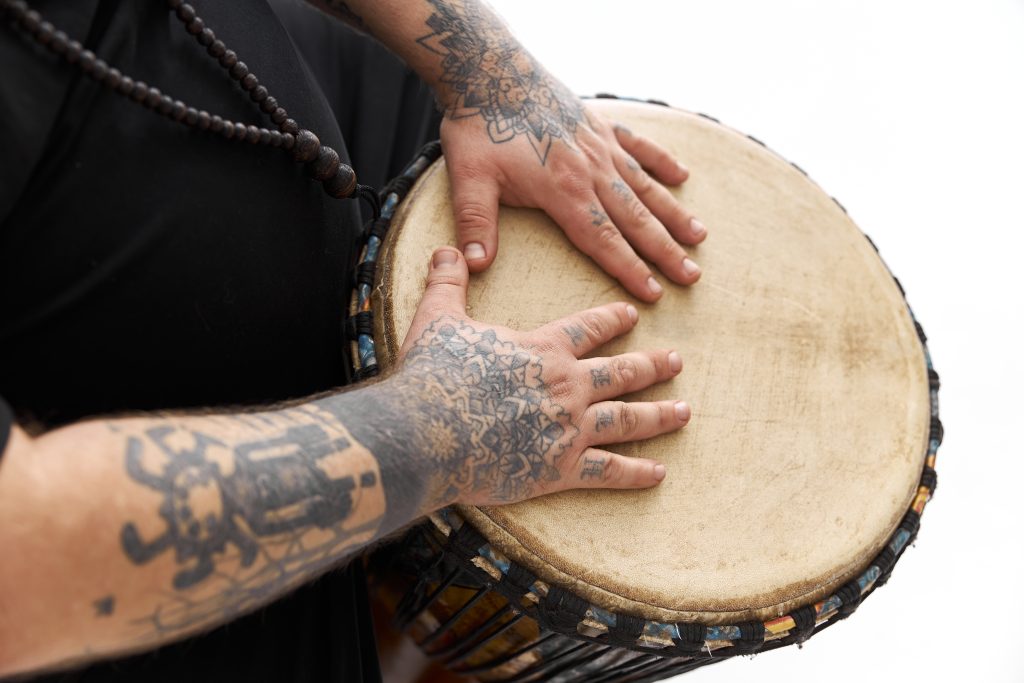

What’s Inside:
Group therapy is an essential part of addiction recovery, providing a safe space for individuals to share their experiences, gain support from peers, and develop healthier coping strategies. While traditional talk therapy plays a vital role, experiential activities for group therapy offer a dynamic way to engage participants on a deeper, emotional level. These hands-on exercises help individuals explore their feelings, build trust, and gain insight into their recovery journey.
Here are 13 experiential therapy activities that can be used in group settings to facilitate healing and growth for those recovering from addiction.
Role-playing is an excellent experiential exercise for group therapy that allows participants to act out real-life situations they may encounter in recovery. By simulating difficult conversations or potential relapse triggers, individuals can practice new responses and coping strategies in a supportive environment. This exercise builds confidence and provides immediate feedback from peers.
The empty chair technique is a powerful experiential therapy activity used to help individuals express feelings toward people, situations, or even parts of themselves. Participants sit in front of an empty chair and imagine someone or something they need to confront is sitting there. By speaking their feelings aloud, participants can release emotions that may be holding them back in their recovery.
Art therapy is a creative way for individuals to express emotions that may be difficult to verbalize. In this experiential activity for group therapy, participants are encouraged to use paints, pencils, or other materials to create images that represent their feelings or experiences in recovery. Art therapy allows for emotional release and fosters self-expression, without the need for words.
Guided imagery is a relaxation-focused experiential exercise for group therapy that helps participants visualize positive outcomes or safe spaces. A facilitator leads the group through a calming meditation, prompting them to imagine a place of peace or success in their recovery. This activity can help individuals manage stress, reduce anxiety, and focus on their goals.
In recovery, trust is often something that needs to be rebuilt—both with oneself and with others. Trust-building exercises, such as trust falls or group problem-solving tasks, are effective experiential therapy activities that promote connection and reliance on others. These exercises can help participants develop trust in their peers, which is crucial for a supportive recovery environment.
Music therapy is a powerful tool in recovery, as it allows individuals to process emotions through sound. In this experiential activity for group therapy, participants might create music, listen to meaningful songs, or discuss lyrics that resonate with their recovery journey. Music can be a form of emotional release and can help individuals express feelings they may struggle to verbalize.
Group collage is a collaborative experiential exercise for group therapy where participants work together to create a visual representation of their shared recovery experience. Each participant contributes images, words, or colors that reflect their personal journey. This activity encourages teamwork, unity, and a deeper understanding of the group’s collective goals.
Writing can be a therapeutic way to process emotions, and this experiential therapy activity focuses on the cathartic power of writing. In this exercise, participants are asked to write a letter to their addiction, detailing how it has impacted their lives and what they hope to achieve in recovery. Sharing these letters in a group setting can lead to powerful discussions and emotional breakthroughs.
Connecting with nature can be deeply healing, and this experiential activity for group therapy combines physical activity with mindfulness. Participants take a walk in a natural setting, reflecting on their recovery journey as they move through the environment. Afterward, the group gathers to discuss their feelings and insights from the experience, fostering connection to both the self and the natural world.
Incorporating movement into therapy can help individuals process emotions stored in the body. Dance and movement therapy is an experiential therapy activity that allows participants to express feelings through physical movement. This activity can help individuals release tension, overcome body-related anxieties, and feel more grounded in their physical presence.
Drumming circles are a rhythmic experiential exercise for group therapy that promotes unity, expression, and stress relief. Each participant takes part in creating a communal rhythm, and the collective sound becomes a symbol of shared experience. Drumming can serve as a powerful outlet for releasing emotions and fostering a sense of togetherness in the group.
Working with clay or other sculpting materials allows participants to create three-dimensional representations of their emotions, experiences, or hopes for the future. This experiential therapy activity taps into the tactile and creative process, encouraging participants to explore complex emotions through physical creation. It is also a great way to focus the mind and engage in a calming, hands-on task.
Storytelling is a core part of many experiential therapy activities, as it allows individuals to reflect on their personal narratives in a group setting. Participants are invited to share stories related to their addiction and recovery journey. This process not only helps the individual understand their experiences better but also fosters empathy and connection within the group, as others may relate to similar struggles.
Experiential activities for group therapy offer dynamic ways to engage individuals in addiction recovery, helping them process emotions, build connections, and foster personal growth. From creative expression to trust-building exercises, these experiential therapy activities can unlock deeper layers of healing and encourage long-lasting recovery.
If you’re on your recovery journey and looking for a supportive environment where you can participate in group therapy and experiential exercises for group therapy, Uplift Recovery is here to help. Our team is committed to providing effective treatment and helping you find the tools for lasting sobriety. Contact us today at 866-979-5848 to learn more about our programs.
